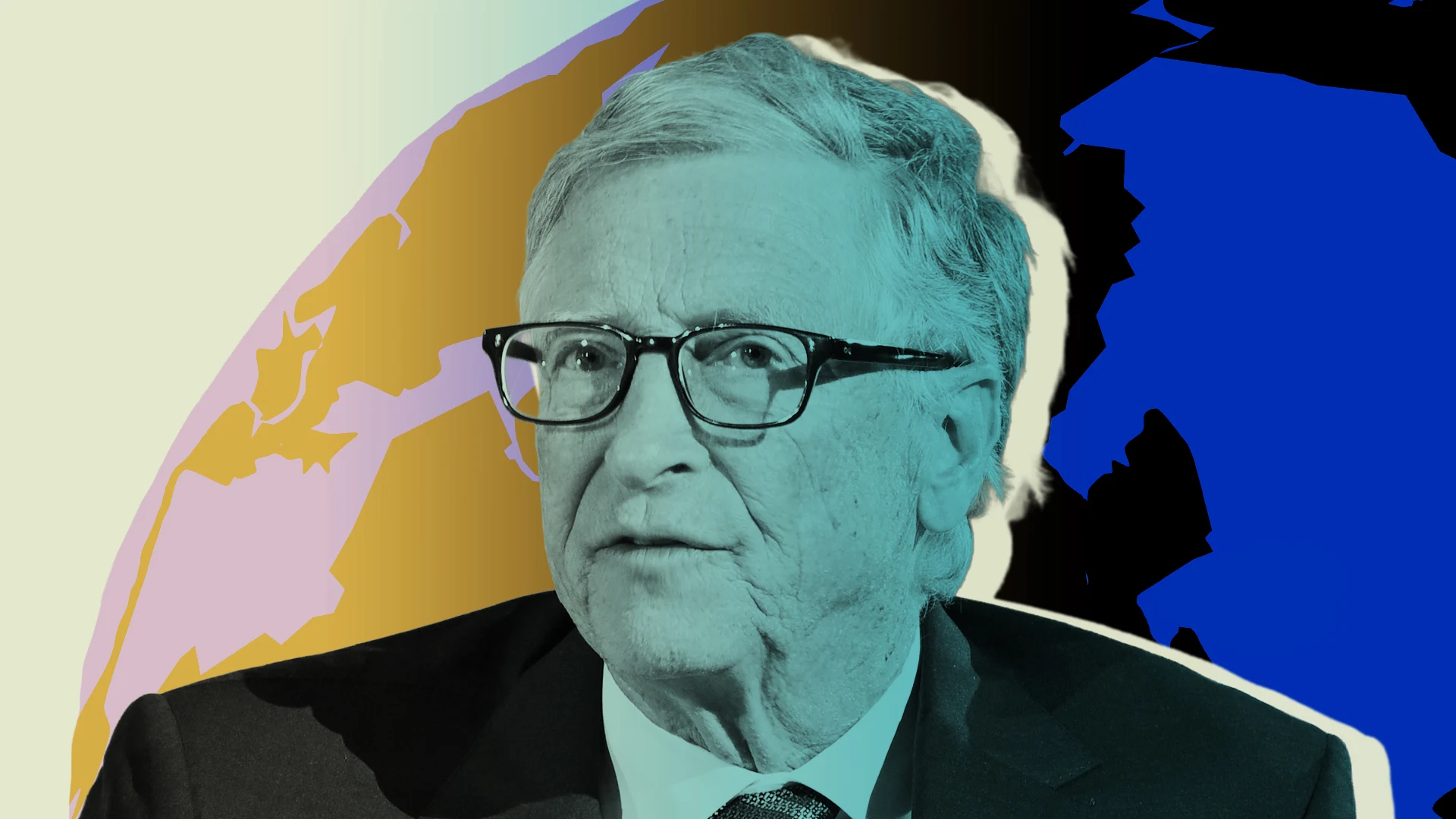Copyright Inc. Magazine

Billionaire Microsoft co-founder Bill Gates just wrote a surprising new blog post on climate change. The upshot of the lengthy memo goes something like this: Climate change is likely to hurt the world’s most vulnerable—but won’t pose a catastrophic risk to civilization, so it’s time to focus on quality of life rather than emissions cuts or temperature rise. The blog was penned in the run up to the United Nations’ global climate conference COP30, which will take place in Brazil in mid-November, and represents a different tone from Gates’s past commentary on climate change. It also comes amid sweeping cuts to foreign aid and open hostility about climate change from the Trump administration. “Although climate change will hurt poor people more than anyone else, for the vast majority of them it will not be the only or even the biggest threat to their lives and welfare. The biggest problems are poverty and disease, just as they always have been,” Gates wrote. “Understanding this will let us focus our limited resources on interventions that will have the greatest impact for the most vulnerable people.” The billionaire philanthropist and Microsoft co-founder has long been a major advocate for climate change mitigation and investment in related technologies. He has invested billions in climate-related causes through his Gates Foundation, which he announced earlier this year will sunset in 2045. (In a blog post on the subject, he wrote that he wanted to accelerate his philanthropy in an effort to give away a bulk of his fortune within 20 years, rather than extending the life of the organization for decades after his death.) Featured Video An Inc.com Featured Presentation He also co-founded Breakthrough Energy in 2015 to find, incubate, and invest in promising companies and projects. The venture capital arm of the organization, Breakthrough Energy Ventures, counts as portfolio companies such businesses as battery recycling company Redwood Materials, sustainable aviation company ZeroAvia, and nuclear fusion company Commonwealth Fusion Systems. The organization has not been immune from broader economic and political changes: It cut “dozens” of staff, according to March reporting from The New York Times. In his post, Gates, who is 70, wrote that the “doomsday view of climate change,” which sees it as having the potential to cause civilizational collapse, is not actually correct. He added that “people will be able to live and thrive in most places on Earth for the foreseeable future,” thanks to projections that show greenhouse gas emissions declining in coming years., and that “innovation will allow us to drive emissions down much further” with supportive policy and investment. “Unfortunately, the doomsday outlook is causing much of the climate community to focus too much on near-term emissions goals, and it’s diverting resources from the most effective things we should be doing to improve life in a warming world,” he added. “It’s not too late to adopt a different view and adjust our strategies for dealing with climate change.” That “different view” entails foregoing measuring success in terms of temperature rise, and instead looking at the impact of climate change on human welfare. He called on COP30 attendees to adopt that approach, and outlined two priorities when thinking about climate change. The first entails investing in innovation to eliminate the premium on pricing for cleaner technologies, particularly in difficult-to-abate sectors like manufacturing, agriculture, and transportation. Second, he emphasized using data to inform which investments are doing the most to save lives and improve quality of life for the most people—and then focus on those. “Vaccines are the undisputed champion of lives saved per dollar spent,” he wrote, as an example. “And vaccines become even more important in a warming world because children who aren’t dying of measles or whooping cough will be more likely to survive when a heat wave hits or a drought threatens the local food supply.” The World Meteorological Organization confirmed 2024 was the hottest year on record with global mean temperatures exceeding the 1.5 degrees celsius benchmark established in the 2015 Paris Agreement. And U.N. secretary general António Guterres said last week that overshooting the temperature goal “is now inevitable,” the BBC reported. Given those developments, stepping away from metrics on climate progress such as temperature rise and emissions cuts may seem drastic. But Gates’s repositioning comes with some key context. Vaccine access has always been a top priority for Gates. But earlier this year, the Elon Musk-helmed Department of Government Efficiency effectively dismantled the U.S. Agency for International Development (USAID) and cut future funding for Gavi, a global vaccine alliance responsible for vaccinating more than one billion children. Gates discussed his anxieties over the reduction in funding in his blog. “COP30 is taking place at a time when it’s especially important to get the most value out of every dollar spent on helping the poorest,” he wrote. “The pool of money available to help them—which was already less than 1 percent of rich countries’ budgets at its highest level—is shrinking as rich countries cut their aid budgets and low-income countries are burdened by debt.” Furthermore, the Trump administration has made no secret of its hostility toward climate change, but continues to position itself as favoring reindustrialization and innovation. Biden-era bills like the Inflation Reduction Act and the Infrastructure Investment and Jobs Act, however, have demonstrated that clean energy and climate tech go hand-in-hand with those objectives. Another priority of the Trump administration, noted in an executive order the president signed on his first day in office, is “unleashing American energy.” While stopping short of endorsing fossil fuels, Gates did echo some of Trump’s points when he wrote that “from the standpoint of improving lives, using more energy is a good thing, because it’s so closely correlated with economic growth.” He did, however, temper it by noting that “what’s good for prosperity is bad for the environment,” given that the world still doesn’t have the means to meet growing energy demand without also spiking emissions. “We will have the tools we need if we focus on innovation. With the right investments and policies in place, over the next ten years we will have new affordable zero-carbon technologies ready to roll out at scale,” he wrote. Speaking of innovation, Gates also mentioned the tech issue of the moment: AI. He wrote that he feels confident that AI will accelerate progress and innovation for companies working on climate solutions. Gates’s shift in tone may be strategic for another reason, as well. Research has increasingly found that young people respond better when climate change is reframed in a more positive, solutions-oriented way. A 2019 research paper identified three different mechanisms of coping with climate anxiety. Whereas one strategy entailed withdrawing from climate discourse in favor of emotional self-soothing, two other strategies—problem-focused and meaning-focused coping—were found to lead more often to climate action. Meaning-focused coping in particular was associated with resilience and entailed a reframing of the problem in a more positive light and placing trust that society will do its part. Experts seem divided on the memo. The director of Columbia University’s Center for Sustainable Development told ABC News the memo was “pointless, vague, unhelpful and confusing.” A Stanford University climate scientist said it is worth considering whether climate change discourse is too pessimistic, but that stakeholders should continue to think longterm about investment in climate change mitigation. And a Princeton expert told ABC that humanity’s welfare can be the top priority in climate-related policy without being the only one. Gates told The New York Times that while he expects the blog to be controversial, he doesn’t see it as a reversal. And in bold font, for emphasis, he wrote: “To be clear: Climate change is a very important problem. It needs to be solved, along with other problems like malaria and malnutrition. Every tenth of a degree of heating that we prevent is hugely beneficial because a stable climate makes it easier to improve people’s lives.”



